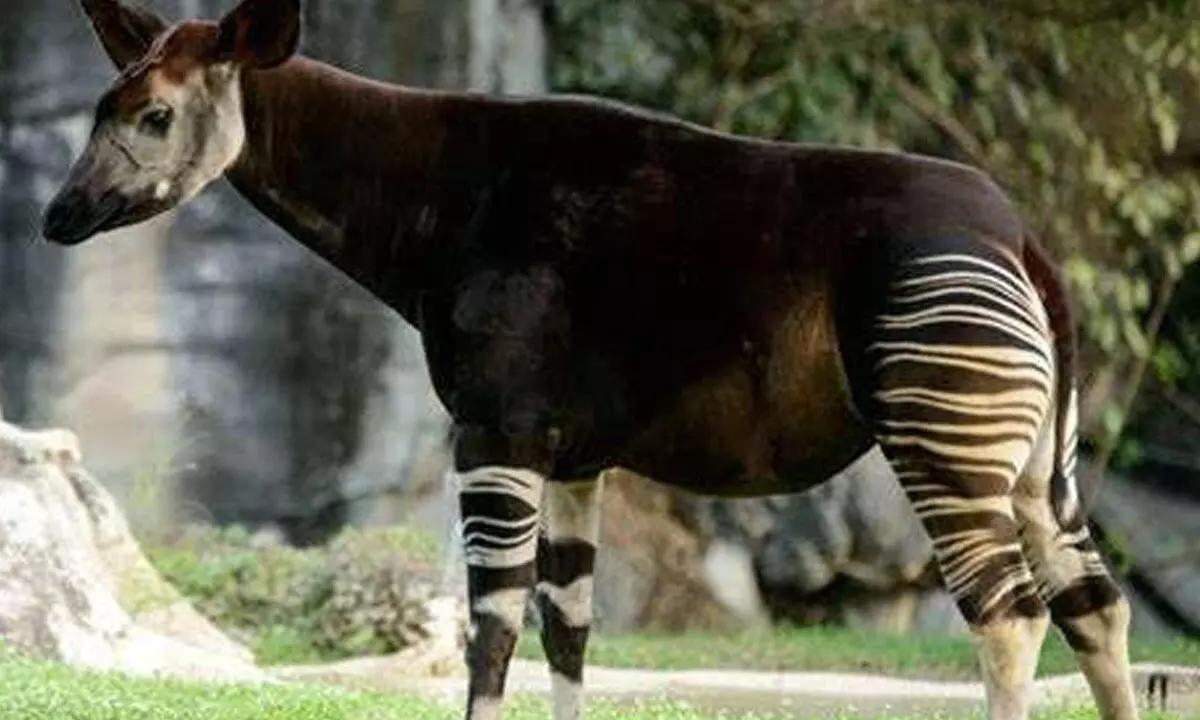Today is World Okapi Day

World Okapi Day is centered around celebrating this special animal and using it as a flagship species to protect the entire forest ecosystem in which it lives.
World Okapi Day is centered around celebrating this special animal and using it as a flagship species to protect the entire forest ecosystem in which it lives. Fun, exciting activities are planned in eight villages around the Okapi Wildlife reserve and are combined with educational messaging targeting key demographics including children, women, Mbuti, and communities in and around the Reserve.
At first glance, the okapi, with its black and white striped hindquarters and a body shaped like a horse, appears to be a close relative of the zebra. In reality, the okapi is related to the giraffe!
In fact, it’s the only living relative of the giraffe. If you take a closer look, you might start to see the resemblance between the two animals.Like a giraffe, the okapi has a long neck, large, perky ears, and cloven hooves. It even has a dark, extra-long, flexible tongue like a giraffe’s for stripping trees and shrubs of their leaves. Fun fact: the okapi is among one of the only mammals in the world that can lick its own ears!
Okapis are native to the dense rainforests of the Democratic Republic of the Congo. While indigenous populations have known of the okapi’s existence for many years, Western scientists didn’t discover the animal until the 1900s.
You might be wondering why okapis have zebra-like stripes. Wouldn’t they stand out like a sore thumb in a tropical rainforest? Actually, their markings provide great camouflage when they stand in the sunlight that filters through the thick, lush greenery of the forest.
Their bodies are covered in oily reddish-brown fur that causes water to slide right off, effectively keeping them dry on rainy days. They also have a keen sense of hearing and smell.








